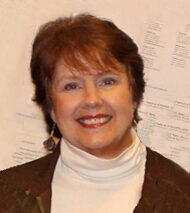
Nancy Huntting, Aesthetic Realism consultant, writes:
What does a poem do that every person wants to do? How can the art of poetry—and an important poet of the 19th century, James Thomson—be a means of our knowing ourselves? Read “What Don’t We Know about Ourselves?,” the great, stirring new issue of The Right of Aesthetic Realism to Be Known.
The commentary by Ellen Reiss begins:
Dear Unknown Friends:
With this issue we begin to publish a magnificent lecture by Eli Siegel: Poetry and the Unconscious, of 1949.
The phrase the unconscious is not used these days as it was for many decades of the 20th century—it’s not used with the terrific frequency of then. And as I see it, the big reason is this: The unconscious had been made very important by Freud, but in the wrong way and for the wrong reasons. He had described it falsely, had people feel that what went on unseen in them was a cauldron of teeming repressions and drives, mainly having to do with sex. The unconscious that Freud depicted was a shabby yet looming thing, and people were fearfully impressed by it. The Freudian approach to mind ruled the field for many years. And when it faded there was largely a putting aside of the unconscious as something to be looked at: psychological practitioners went away from Freud without saying plainly that he was wrong; and while his view of the unconscious by then seemed uncompelling, they couldn’t replace it with anything that made sense. They didn’t understand the unconscious any better than he had.
Our Self, Seen Truly
Eli Siegel was a clear, courageous critic of Freud when Freudianism was at its height and few dared question it. The description Mr. Siegel gave then—and gives here—of the human self is beautiful, exact, true. And it is immediate for us. It is of this moment—because while people nowadays may not use the term unconscious, everyone feels there is much we don’t know about ourselves. We don’t know what makes us do as we do, feel as we feel. And unconscious, in keeping with its etymology, simply means not with knowledge, or not known.
Mr. Siegel gave the following definition—and this, in its simplicity and clarity, is so different from the murk of Freud: “The unconscious is that which is of us and affects us but we don’t know is of us and affects us” (TRO 667). People today, like those of every century, are afraid of what they don’t know about themselves. Yet they also long to understand it…. Read More